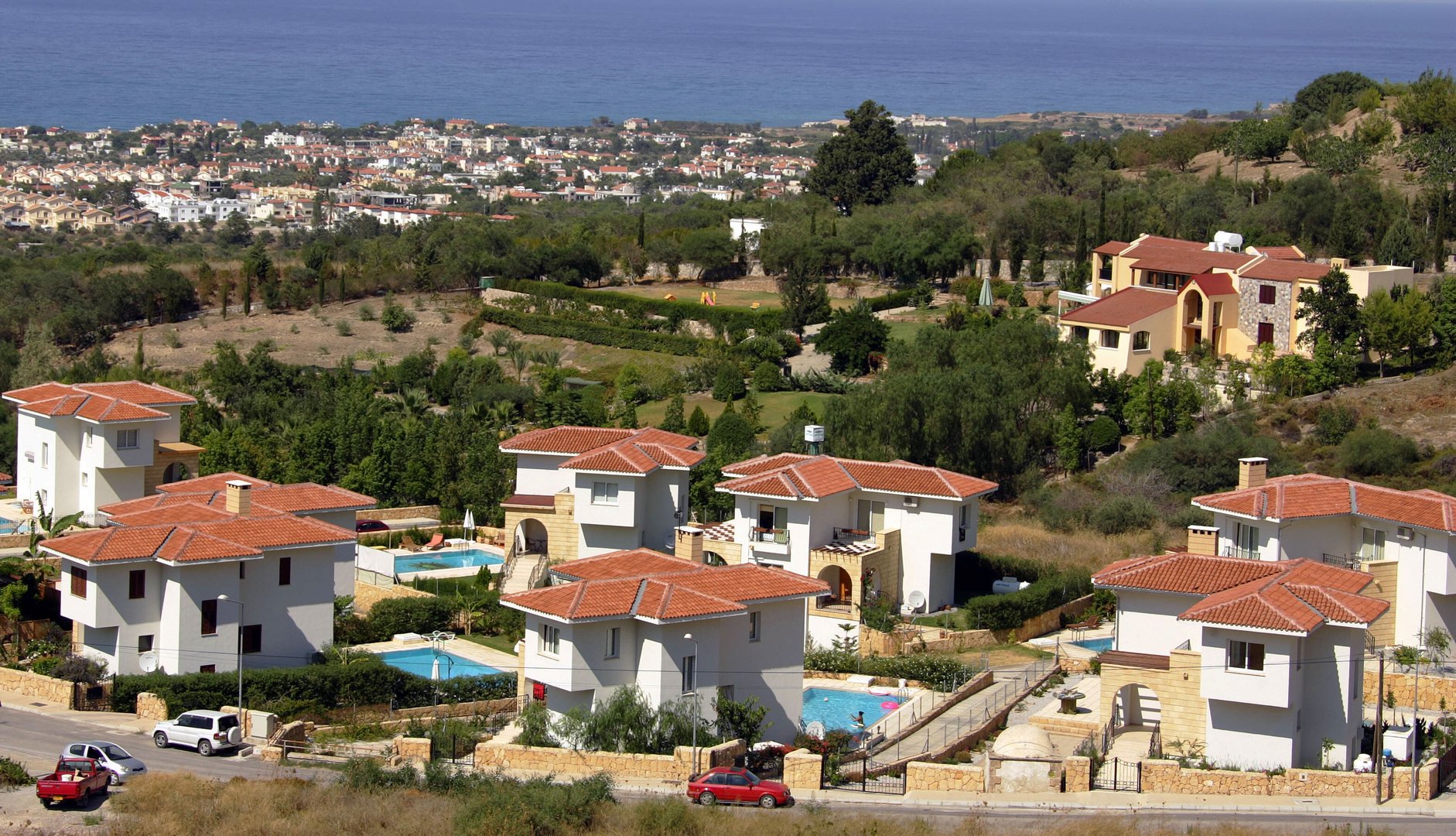Greek Cypriot chief negotiator Menelaos Menelaou warned British people considering buying holiday homes to avoid doing so in northern Cyprus.
Speaking to British newspaper the Daily Express, he said, “they should definitely be careful because they are going to a place where there is an occupation, an illegal occupation, and an illegal regime that cannot produce any legal acts, including in the field of the selling and buying of properties.
“If it is a transaction that concerns a title deed that is illegal, that concerns a property of a Greek Cypriot, with a lawful owner, but for which another title deed has been issued, and this is the title deed that is sold, then they have engaged in illegal activity,” he said.
Asked whether a British person who buys a property in the north which belonged to a Greek Cypriot prior to Turkey’s invasion of the island in 1974 could be taken to court, he said that “if the rightful owner initiates legal proceedings, then they might find themselves in a situation of having to face legal consequences.
“One cannot exclude that possibility … Even if they didn’t buy the property knowingly, that does not constitute an excuse, because the buyer would have to check whether the property sale is of a legal nature. It is as if someone is accepting an amount of money without checking where it is from,” he said.
Menelaou’s comments come after the Republic of Cyprus has in recent months arrested a number of European Union and third country nationals suspected of developing or aiding and abetting the development of Greek Cypriot-owned land in the north.
The most high-profile arrestee was Israeli property developer Simon Aykut, who remains in custody after having been arrested in June last year, and is accused of developing and selling €43 million worth of property on Greek Cypriot land in the north.
A month after the arrest of Aykut, a German woman was arrested after having a conversation aboard a flight with Elam member of the European parliament Geadis Geadi in which prosecutors allege that she admitted to selling Greek Cypriot-owned property in the north. She, too, remains in custody.
In May, the first two sentences were handed down, with two Hungarian women being sentenced to two and a half years and 15 months in prison respectively after advertising the sale of houses in the north on their social media accounts and websites.
Turkish Cypriot leader Ersin Tatar described those arrests on multiple occasions as “terrorism”, adding that “the Greek Cypriot leadership’s terrorising steps are destroying the grounds for talks” between the island’s two sides.
The United Kingdom’s foreign office warns British citizens considering buying properties in the north that “the ownership of many properties is disputed in the north of Cyprus”, and that “purchase of these properties could have serious financial and legal implications”.
“Purchasers could face legal proceedings in the courts of the Republic of Cyprus, as well as attempts to enforce judgments from these courts elsewhere in the EU,” it said, before referring to “at least one successful case to enforce rulings in the UK, putting at risk property owned in the UK”.
That case concerned David and Elizabeth Orams, who had bought a plot of land near the Kyrenia district village of Lapithos in 2002 and built a villa on it.
However, when the first crossing points between the island’s two sides opened the following year, the land’s pre-1974 owner Meletios Apostolides discovered that a villa had been built on his land and as such took the case to the Republic of Cyprus’ Nicosia district court.
In 2004, the Nicosia district court ordered the Orams to demolish the villa, give Apostolides the land, and pay him damages. They appealed the decision at the supreme court and lost.
Given that the UK was still a member of the EU at the time, Apostolides used EU regulations to have the Cypriot ruling apply against the Orams couple’s assets in the UK, with the Orams then appealing the decision at the UK’s high court of justice.
Apostolides then appealed the decision at the court of appeal, which referred the case to the European Court of Justice, which in turn ruled in his favour in 2009.
The Orams then attempted to appeal this ruling to the UK’s supreme court in 2010, months after its creation, but were unsuccessful.






Click here to change your cookie preferences